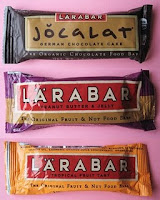Why Gluten Should Be Avoided!
Gluten is the protein within wheat, barely, and rye. It was thought that about 1 in 10,000 people suffered from gluten intolerance, but it was soon discovered that it is closer to 1 in 100 people. The reason the stats were off by so many was that Doctor's were not diagnosing the problem as a wheat tolerance, but were prescribing other drugs and remedies to cure the patient's aliments. Two very common diseases that require you to ELIMINATE gluten from your diet are:
Celiac disease is an inherited inability to digest the gluten protein within the small intestine. When a person with ceiliac eats gluten their body attacks the small intestine and prohibits their body from absorbing the beneficial vitamins, minerals, carbs, and fats from their food. The cause of celiac disease (CD) is unknown; however, severe emotional stress, pregnancy, surgery, and viral infections can lead to this.
Symptoms: diarrhea, bloating, abdominal discomfort, fatigue, foul smelling gas, vitamin deficiency (D3, B12, K), anemia, infertility, autoimmune disorders, osteoporosis, neurological diseases, and in rare cases cancer etc...
Crohn's Disease is an disorder that causes inflammation to the digestive tract. This disease can affect anywhere from your mouth to a person's anus, but most commonly it affects the small intestine.
Symptoms: persistent diarrhea, rectal bleeding, abdominal pain, arthritis, weight loss, fever, sores within mouth etc...
"Before the advent of factory farming, grain was partially germinated (sprouted). This resulted from being sheaved and stacked in fields, which stood for several more weeks before threshing. During this period, the grain seeds were exposed to rain and dew which soaked into the sheaves. The grain could pick up this moisture and, with heat from the sun, conditions were ideal for favoring a degree of germination and enzyme multiplication in the grain.3
The process of sprouting not only produces vitamin C; it changes the composition of the grain in numerous ways that make it more beneficial as a food. For example, sprouting increases the content of such vitamins as vitamin B, B2, B5 and B6. Carotene, which is converted to vitamin A, increases dramatically -- sometimes eight-fold.
Phytic acid is present in the bran of all grains, the coating of nuts and seeds and inhibits the absorption of calcium, magnesium, iron, copper and zinc. It is recommended that you soak your seeds and nuts for 8-12 hours before consuming them" (Dr. Mercola-You are What you Eat).
Celiac disease is an inherited inability to digest the gluten protein within the small intestine. When a person with ceiliac eats gluten their body attacks the small intestine and prohibits their body from absorbing the beneficial vitamins, minerals, carbs, and fats from their food. The cause of celiac disease (CD) is unknown; however, severe emotional stress, pregnancy, surgery, and viral infections can lead to this.
Symptoms: diarrhea, bloating, abdominal discomfort, fatigue, foul smelling gas, vitamin deficiency (D3, B12, K), anemia, infertility, autoimmune disorders, osteoporosis, neurological diseases, and in rare cases cancer etc...
Crohn's Disease is an disorder that causes inflammation to the digestive tract. This disease can affect anywhere from your mouth to a person's anus, but most commonly it affects the small intestine.
Symptoms: persistent diarrhea, rectal bleeding, abdominal pain, arthritis, weight loss, fever, sores within mouth etc...
****If you have of the above symptoms you can go to your doctor and get a test done to determine if you have CD or Crohn's Disease****
Contains Gluten:
- Barley
- Bulgur
- Durham
- Farina
- Graham flour
- Kamut
- Matzo meal
- Rye
- Semolina
- Spelt (a form of wheat)
- Triticale
- Wheat
- Malt
- Starches
- Hydrolyzed vegetable protein (HVP)
- Natural Flavorings
- Texturized vegetable protein (TVP)
- Amaranth
- Arrowroot
- Buckwheat
- Corn
- Cornmeal
- Gluten-free flours (rice, soy, corn, potato, bean)
- Hominy grits
- Polenta
- Pure corn tortillas
- Quinoa
- Rice
- Tapioca
- Potatoes
- Rice
- Wine and distilled liquors (bourbon, brandy, cognac, Kahlua, vodka, rum, whiskey, sherry, tequila etc..)
"Before the advent of factory farming, grain was partially germinated (sprouted). This resulted from being sheaved and stacked in fields, which stood for several more weeks before threshing. During this period, the grain seeds were exposed to rain and dew which soaked into the sheaves. The grain could pick up this moisture and, with heat from the sun, conditions were ideal for favoring a degree of germination and enzyme multiplication in the grain.3
The process of sprouting not only produces vitamin C; it changes the composition of the grain in numerous ways that make it more beneficial as a food. For example, sprouting increases the content of such vitamins as vitamin B, B2, B5 and B6. Carotene, which is converted to vitamin A, increases dramatically -- sometimes eight-fold.
Phytic acid is present in the bran of all grains, the coating of nuts and seeds and inhibits the absorption of calcium, magnesium, iron, copper and zinc. It is recommended that you soak your seeds and nuts for 8-12 hours before consuming them" (Dr. Mercola-You are What you Eat).
If you are interested in starting a Gluten Free Diet then I suggest you go to Whole Foods and Trader Joe's! TJ's has this amazing Gluten-Free list that you can follow. Print it out and take it to your local TJ's for a healthier way of life!
My Personal goal is to cut out as much gluten as possible. I love bread too much to be on a completely gluten-free diet, but I think that a healthier lifestyle will come from limiting gluten. I will start sharing some gluten-free suggestions and diets with all of my friends with Crohn's Disease and CD! :)




Comments